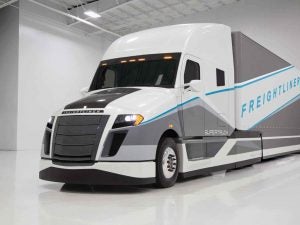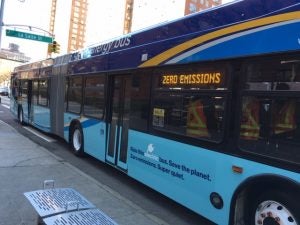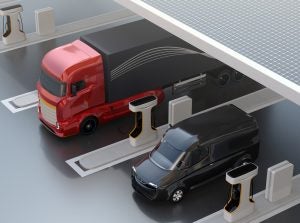 It’s an everyday scene in Southern California: a big rig hauling a metal shipping container from a port facility to a distribution center or rail yard. Last week, this old story got a new twist with a 120-mile emission-free haul featuring two shipping behemoths from Northwest Arkansas: Walmart and J.B. Hunt.
It’s an everyday scene in Southern California: a big rig hauling a metal shipping container from a port facility to a distribution center or rail yard. Last week, this old story got a new twist with a 120-mile emission-free haul featuring two shipping behemoths from Northwest Arkansas: Walmart and J.B. Hunt.
Our nation’s two biggest marine ports – the Port of Los Angeles and the Port of Long Beach – operate right next door to each other in a complex known as the San Pedro ports. Nearly 40% of the shipping containers coming into the U.S. enter through this complex. These containers are packed with goods destined for homes and business across the country, with stops along the way at distribution centers, fulfillment centers and retail shelves.
The consumption and movement of these goods has profound equity implications. This is acutely the case around the San Pedro ports. A recent report found that “freight movement accounts for about 42% of NOx emissions in the South Coast Air Basin, with heavy-duty trucks that service the ports the single-largest source within that category.” These trucks, known as drayage trucks, are a mere 0.1% of the vehicles on the road but contribute 5% of total NOx pollution. Addressing the impact of drayage trucks is an environmental and equity imperative. Thankfully, we have the technical means to do so. Read More



